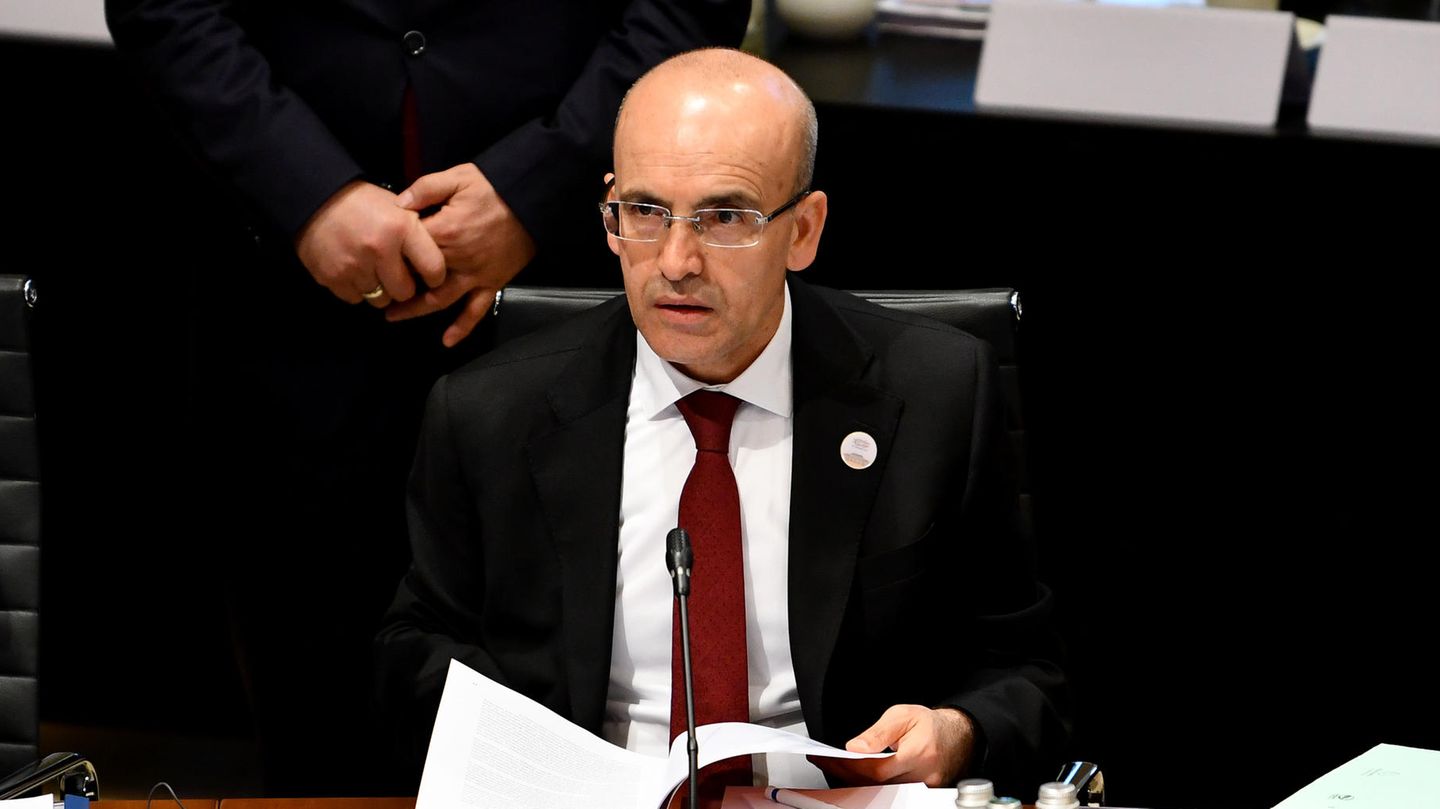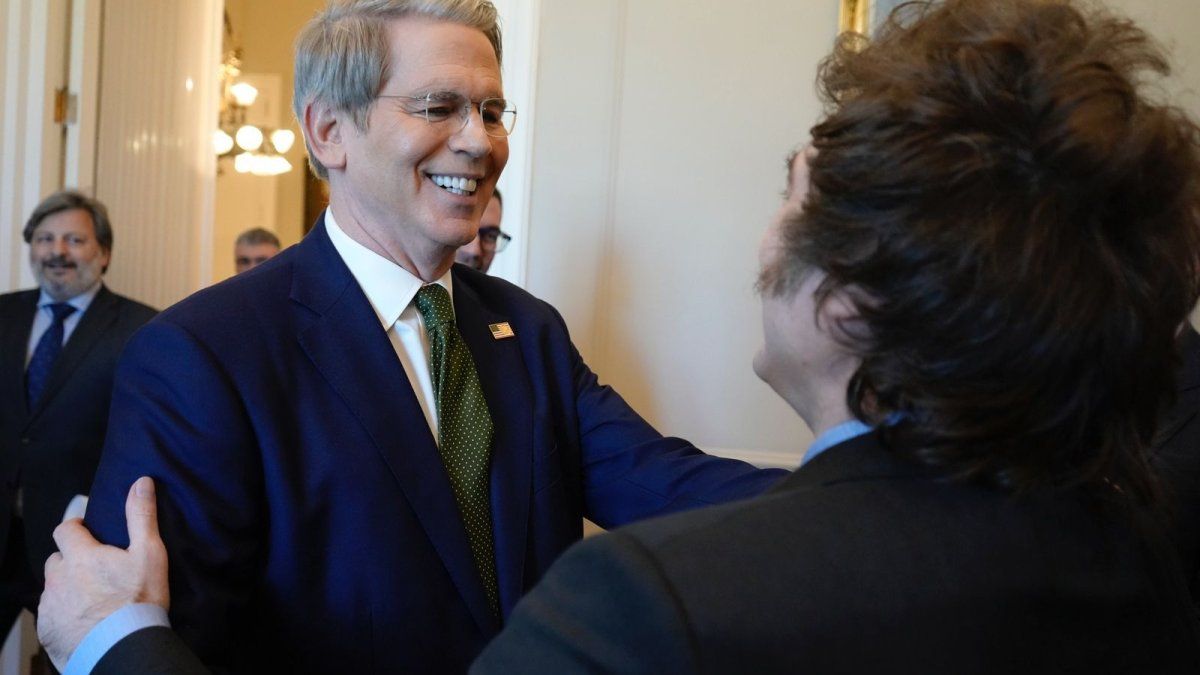The return of long-serving finance minister Mehmet Simsek fuels expectations that Turkey will find a way out of the severe economic crisis. But a new minister under President Erdogan does not guarantee a turnaround.
By Marna Zapf
The slide in the Turkish lira since the re-election of President Recep Tayyip Erdogan was not able to stop the appointment of the new finance minister immediately. Mehmet Simsek, who was a member of two governments under Erdogan between 2009 and 2018, explained pretty much everything the financial markets wanted to hear in his first statement: the former Merill-Lynch economist committed himself to financial stability, the fight against inflation, accountability and transparency, and on budgetary discipline. But one of the most resounding magic words he mentioned was “rational politics”.
The new appointment fuels high expectations that the irrational policy of cheap money for households and companies in times of exuberant inflation, which economists call at least “unorthodox”, implemented by the Turkish President could also come to an end with the person of Simsek. For years, Erdogan had pressured successive central bankers to keep interest rates low to stimulate the economy via credit while hyperinflation stole the purchasing power of the population.
The inflation rate is extremely high
Shortly before the election, the inflation rate was officially around 40 percent, after a 24-year high of 85 percent in autumn last year, and experts are still assuming a multiple in real terms today. In May, before the parliamentary and presidential elections, Erdogan even waived gas bills for private households in order to statistically reduce the figure from 44 percent in April. The lira lost more than 90 percent of its value against the dollar in the span of a decade, and the last acute currency crisis shook the country in 2021.
So now the personnel that signals the possible glimmer of hope of a return to economic reason and countermeasures to the crisis – provided that the new treasurer gets a like-minded and independent head of the central bank at his side, and the autocrat Erdogan gives both of them the legroom they need to understand the causes of the serious address economic disruption. “Simsek must be given a chance,” tweeted emerging market analyst and longtime Turkey watcher Timothy Ash. “He is a good economist and an honest person.”
Specifically, Simsek immediately announced that he wanted to take urgent steps to return to single-digit inflation rates in the medium term. “To achieve sustainable development, we give top priority to budgetary and price discipline,” he said in Ankara. The country has no choice but to get back on the ground of rational politics with a rule-based, predictable economy. Such a move would quickly tighten the interest rate screw and curb an escalating budget deficit. As finance minister and deputy prime minister, the economist stood for a credible stability policy. Until 2018 Erdogan also took over the function of the head of government.
Foreign exchange reserves are exhausted
Since then, monetary devaluation – combined with repeated central bank support purchases in favor of the lira – has become the key instrument to counteract severe imbalances. Foreign exchange reserves are now exhausted: Experts speak of gross reserves of $100 billion, the lowest level since 2002, while the central bank is below zero net. The external financing requirement is estimated at 203 billion dollars. In the past it has been said repeatedly that the Erdogan government tapped sources of funds in Russia and Qatar “through the back door”. The trade deficit has grown to an unprecedented $56 billion in the first five months of this year, largely due to strong import demand (particularly for consumer goods).
The growth was recently driven by the service sector and the construction industry, but above all by private consumption – which, however, is financed by credit to an alarming extent. An increasingly indebted state is making a significant contribution to this “excessively consumption-oriented economic structure”, according to the analysis by the Turkish economics professor Tahsin Bakirtas in the economic service PA Turkey. According to this, the public budget deficit from January to April 2023 increased by a sensational 1870 percent to 383 billion lira compared to the same period last year.
It remains to be seen whether the 56-year-old Simsek will now use the narrow path that he probably wrested from the “interest enemy” Erdogan for taking office to return to a consistent austerity policy after countless election gifts for supporters of the ruling party. Before the new cabinet was formed, there were apparently repeated meetings between him and the president. Vice-President will also be Cevdet Yilmaz, who is also considered a supporter of “orthodox” economic and financial policies.
Skeptics expect limited room for manoeuvre
Nevertheless, skeptical voices expect the new finance minister to have limited room for manoeuvre. “It looks like Erdogan is taking the loss of confidence in his ability as an economic crisis manager seriously,” Emre Peker of the Eurasia Group think tank told Reuters. “But while Simsek’s election can probably delay a crisis, long-term corrections in favor of the economy are not to be expected.” Like the economist Bakirtas, Pekter is already looking at the upcoming local elections in March 2024, which could mean a headwind.
While Bakirtas sees the consumption model based on ever greater lending and access to the required foreign financing as exhausted, he also considers a consistent course reversal to be unlikely, precisely because of the next voter test. Simsek might succeed in making the capital markets more friendly and reducing risk premiums on government bonds. But for a populist government facing local elections in less than a year, such a turnaround – which comes at a high cost for households and businesses – is very difficult to achieve.
The article first appeared on capital.de.
Source: Stern




